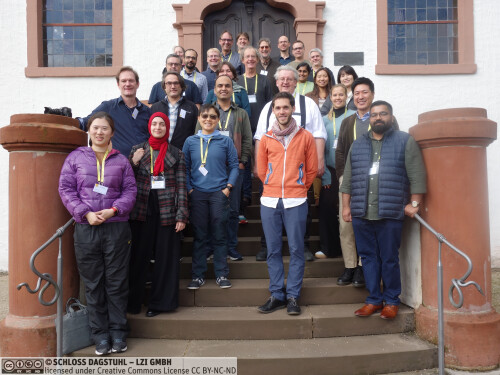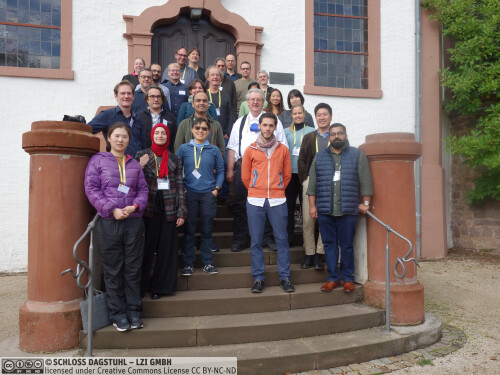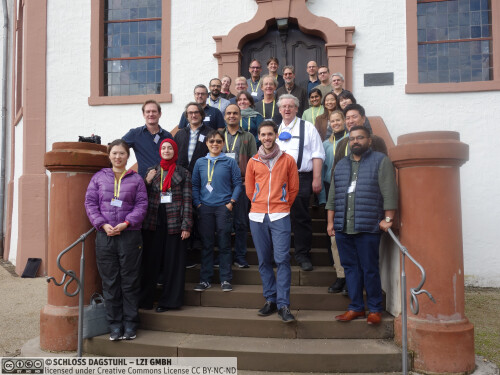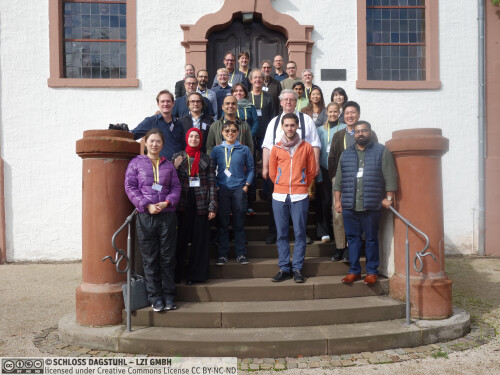Dagstuhl Seminar 24402
Greening Networking: Toward a Net Zero Internet
( Sep 29 – Oct 02, 2024 )
Permalink
Organizers
- Alexander Clemm (Los Gatos, US)
- Dirk Kutscher (HKUST - Guangzhou, CN)
- Michael Welzl (University of Oslo, NO)
- Cedric Westphal (Futurewei - Santa Clara, US)
- Noa Zilberman (University of Oxford, GB)
Contact
- Andreas Dolzmann (for scientific matters)
- Susanne Bach-Bernhard (for administrative matters)
Shared Documents
- Dagstuhl Materials Page (Use personal credentials as created in DOOR to log in)
Press/News
Schedule
What is the path towards a Net Zero Internet? Reducing carbon emissions to slow climate change is one of mankind's greatest challenges. Networking technology is key to that challenge - as a provider for solutions (such as enabling teleworking and reducing travel), but also as a contributor to greenhouse gas emissions, e.g. through significant power consumption. It is thus becoming important to make networks themselves "greener" and devise solutions that result in less carbon-intensity while continuing to meet increasing network traffic demands and service requirements. Complicating the matter, energy consumption relates to CO2 emissions in ways that vary a lot by network operators (through the use of “clean” energy).
Many of today's improvements are driven by general advances in computing hardware as well as in transmission technology (antennas, lasers). While this is where the biggest opportunities for energy reduction may lie, it is important to extend questions of greenness to other aspects of carbon reduction, both temporal and spatial, and to other layers in the networking stack - to the data and control plane, to routing and traffic forwarding, to the ways in which networks are organized and deployed. For example, can network protocols be designed in ways that make them more carbon-efficient, e.g. by routing along a path that is primarily powered by renewable energy, so as to reduce CO2 emissions with proper path selection? Can control planes be designed in a way that allows to rapidly decommission resources that may currently not be needed without compromising other important goals such as network resilience or security? How much overhead is introduced by current architectures and protocols for cloud computing, media streaming, and content distribution and what is the energy conservation potential of alternative systems? What protocol advances could enable greener networking solutions? How can networks be optimized not just for QoS or utilization but for low environmental impact?
The goal of this Dagstuhl Seminar is to bring together researchers of different perspectives with a vested interest on this topic, exchange ideas, and explore possibilities for synergy in their respective research directions. We wish to identify and prioritize the most impactful networking improvement to reduce carbon emission, define action items for a carbon-aware networking research agenda, and foster/facilitate research collaboration in order to reduce carbon emissions and to positively impact climate change.
This seminar will be organized into sessions pertaining to these themes, with presentations from leading researchers drawn from the invitees. Researchers in the six main topics - devices, protocols, metric, measurement, architecture, management - are invited to participate.
The outcome of the seminar is to identify mechanisms to quantify (at the device, protocol, architecture levels) the carbon footprint of a network. This involves considering measurement tools, metrics, and management of the network. We plan to define a roadmap (as a white paper) to deploy these tools into practical network settings and into standardization efforts. Additionally, we will consider the key research items that would yield the most impact. One goal is to identify a two-dimensional matrix: on one axis, it will consider the potential impact (in reduction of energy consumption and/or carbon emissions) of a green networking solution; and on another axis the solution’s time to deployment. We hope to publish this matrix as a guideline for future research on green networks, either as a survey or as a white paper; to encourage publication of papers in a visible journal or conference; and to disseminate the results of the Dagstuhl seminar in the IETF and in other bodies.
 Alexander Clemm, Dirk Kutscher, Michael Welzl, Cedric Westphal, and Noa Zilberman
Alexander Clemm, Dirk Kutscher, Michael Welzl, Cedric Westphal, and Noa Zilberman
Please log in to DOOR to see more details.
- Jari Arkko (Ericsson - Jorvas, FI) [dblp]
- Anaïs Berkes (University of Cambridge, GB) [dblp]
- Carsten Bormann (Universität Bremen, DE) [dblp]
- Marc Bruyère (Internet Initiative Japan Inc. - Tokyo, JP) [dblp]
- Wen Cai (University of Oslo, NO)
- Alexander Clemm (Los Gatos, US) [dblp]
- Luis Miguel Contreras Murillo (Telefónica - Madrid, ES) [dblp]
- Hermann de Meer (Universität Passau, DE) [dblp]
- Sawsan El Zahr (University of Oxford, GB) [dblp]
- Simone Ferlin-Reiter (Red Hat, Stockholm, SE & Karlstad University, SE) [dblp]
- Te-Yuan Huang (Netflix - Los Gatos, US) [dblp]
- Romain Jacob (ETH Zürich, CH) [dblp]
- Tony John (Otto-von-Guericke-Universität Magdeburg, DE)
- Dirk Kutscher (HKUST - Guangzhou, CN) [dblp]
- Jong Hoon Kwon (ETH Zürich, CH) [dblp]
- Xiaolan Liu (Loughborough University, GB)
- David Oran (MIT - Cambridge, US) [dblp]
- Gopika Premsankar (Aalto University, FI)
- Daniel Schien (University of Bristol, GB) [dblp]
- Magnus Skjegstad (University of Oslo, NO)
- Farzad Tashtarian (Alpen-Adria-Universität Klagenfurt, AT)
- Michael Welzl (University of Oslo, NO) [dblp]
- Cedric Westphal (Futurewei - Santa Clara, US) [dblp]
- Jiadong Yu (HKUST - Guangzhou, CN) [dblp]
- Hammad Zafar (NEC Laboratories Europe - Heidelberg, DE)
- Noa Zilberman (University of Oxford, GB) [dblp]
Classification
- Distributed / Parallel / and Cluster Computing
- Networking and Internet Architecture
Keywords
- green networking
- carbon-aware networking
- sustainable networking
- energy-efficient networking





 Creative Commons BY 4.0
Creative Commons BY 4.0
